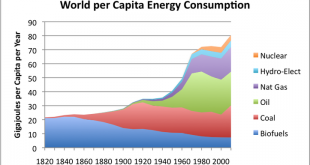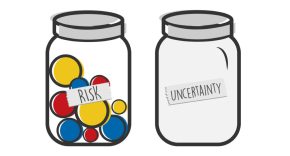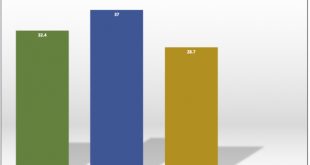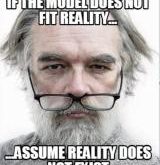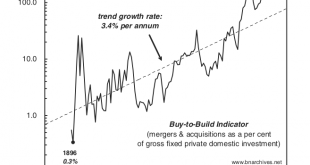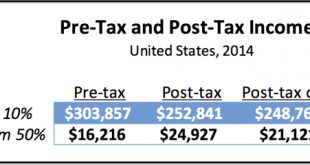from Blair Fix Vaclav Smil is by far the most prolific energy muckraker out there. I’m not going to try to summarize his research. Just look at his list of publications here. But I will leave you with a beautiful chart of Smil’s data. Gail Tverberg has used Smil’s data to make a fantastic series of charts on world energy consumption. She uses Angus Maddison’s population data too. See the whole series here. Below is Tverberg’s chart for energy use per capita. Credit to Tverberg for such a...
Read More »Skidelsky on the uselessness of ‘New Keynesian’ economics
from Lars Syll Whereas the Great Depression of the 1930s produced Keynesian economics, and the stagflation of the 1970s produced Milton Friedman’s monetarism, the Great Recession has produced no similar intellectual shift. This is deeply depressing to young students of economics, who hoped for a suitably challenging response from the profession. Why has there been none? Krugman’s answer is typically ingenious: the old macroeconomics was, as the saying goes, “good enough for government...
Read More »Should we have billionaires?
from Dean Baker The Democratic presidential campaign has taken a strange twist in recent days, with candidates being asked whether we should have billionaires. While there may be some grand philosophical questions at stake here, I will stick to more mundane economic ones. The real question is: How do you want the economy to work? The basic story is that if we have a market economy, some people can get very rich. If we buy the right-wing story, the superrich got their money from their...
Read More »“That makes me smart”
from David Ruccio Emmanuel Saez and Gabriel Zucman begin their new book, The Triumph of Injustice: How the Rich Dodge Taxes and How to Make Them Pay, with the moment in 2016 during the first presidential election debate between Donald Trump and Hillary Clinton when the former Secretary of State challenged the reality-show celebrity about how little he had paid in federal income taxes over the years. Trump proudly admitted it: “That makes me smart.” And Clinton, for all her carefully...
Read More »Why Wall Street shorts economists and their DSGE models
from Lars Syll Very few Wall Street firms find the DSGE models useful … This should come as no surprise to anyone who has looked closely at the models. Can an economy of hundreds of millions of individuals and tens of thousands of different firms be distilled into just one household and one firm, which rationally optimize their risk-adjusted discounted expected returns over an infinite future? There is no empirical support for the idea. Indeed, research suggests that the models perform...
Read More »Graphics from 4 empirical muckrakers – 1. Nitzan and Bichler’s Buy-to-Build Indicator
from Blair Fix During the 1990s, corporate mergers became part of the public zeitgeist. But what is the deep history of mergers and acquisitions? Jonathan Nitzan and Shimshon Bichler piece together the puzzle with their ‘buy-to-build’ indicator. This indicator measures the dollar value of mergers and acquisitions expressed as a percentage of gross fixed investments. It tells us how much corporations are spending on buying other companies, relative to how much they are spending on...
Read More »Why philosophy and methodology matter for economics
from Lars Syll A critique yours truly sometimes encounters is that as long as I cannot come up with some own alternative to the failing mainstream theory, I shouldn’t expect people to pay attention. This is, however, to totally and utterly misunderstand the role of philosophy and methodology of economics! As John Locke wrote in An Essay Concerning Human Understanding: The Commonwealth of Learning is not at this time without Master-Builders, whose mighty Designs, in advancing the Sciences,...
Read More »Bottom 50% income shares across the world, 1980–2016
United States of inequality
from David Ruccio Obscene levels of economics inequality in the United States are now so obvious they’ve become one of the main topics of public and political discourse (alongside and intertwined with two others, the climate crisis and the impeachment of Donald Trump).* Most Americans, it seems, are aware of and increasingly incensed by the grotesque and still-growing gap between a tiny group at the top—wealthy individuals and large corporations—and everyone else. And this sense of...
Read More »Facts, fallacies and echo chambers
from Iconoclast The above discussion “The new minds of young people will be open to the new empirical evidence.” illustrates the difficulties encountered by heterodox thinkers. Orthodox thinkers share a dogma, or at least a set of a priori assumptions, and usually a methodology. In essence, this makes orthodox thinking an echo chamber where basic ontology is never questioned. When the heterodox argue, as in the economically heterodox here, the argument eventually descends (or ascends?)...
Read More » Real-World Economics Review
Real-World Economics Review

